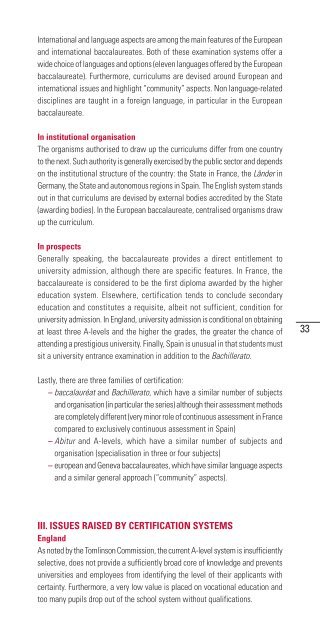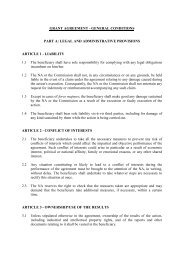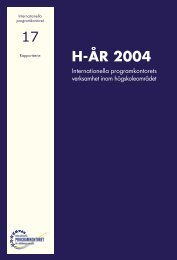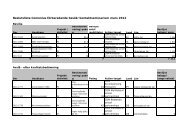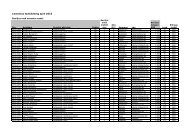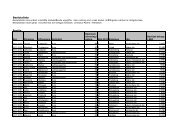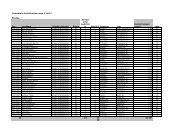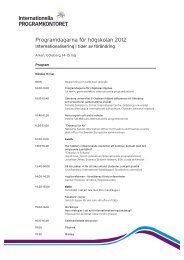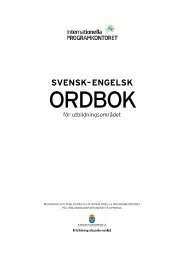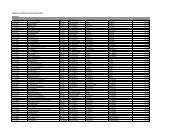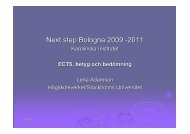Baccalauréat, A-levels, Abitur, Bachillerato
Baccalauréat, A-levels, Abitur, Bachillerato
Baccalauréat, A-levels, Abitur, Bachillerato
You also want an ePaper? Increase the reach of your titles
YUMPU automatically turns print PDFs into web optimized ePapers that Google loves.
International and language aspects are among the main features of the European<br />
and international baccalaureates. Both of these examination systems offer a<br />
wide choice of languages and options (eleven languages offered by the European<br />
baccalaureate). Furthermore, curriculums are devised around European and<br />
international issues and highlight “community” aspects. Non language-related<br />
disciplines are taught in a foreign language, in particular in the European<br />
baccalaureate.<br />
In institutional organisation<br />
The organisms authorised to draw up the curriculums differ from one country<br />
to the next. Such authority is generally exercised by the public sector and depends<br />
on the institutional structure of the country: the State in France, the Länder in<br />
Germany, the State and autonomous regions in Spain. The English system stands<br />
out in that curriculums are devised by external bodies accredited by the State<br />
(awarding bodies). In the European baccalaureate, centralised organisms draw<br />
up the curriculum.<br />
In prospects<br />
Generally speaking, the baccalaureate provides a direct entitlement to<br />
university admission, although there are specific features. In France, the<br />
baccalaureate is considered to be the first diploma awarded by the higher<br />
education system. Elsewhere, certification tends to conclude secondary<br />
education and constitutes a requisite, albeit not sufficient, condition for<br />
university admission. In England, university admission is conditional on obtaining<br />
at least three A-<strong>levels</strong> and the higher the grades, the greater the chance of<br />
attending a prestigious university. Finally, Spain is unusual in that students must<br />
sit a university entrance examination in addition to the <strong>Bachillerato</strong>.<br />
33<br />
Lastly, there are three families of certification:<br />
– baccalauréat and <strong>Bachillerato</strong>, which have a similar number of subjects<br />
and organisation (in particular the series) although their assessment methods<br />
are completely different (very minor role of continuous assessment in France<br />
compared to exclusively continuous assessment in Spain)<br />
– <strong>Abitur</strong> and A-<strong>levels</strong>, which have a similar number of subjects and<br />
organisation (specialisation in three or four subjects)<br />
– european and Geneva baccalaureates, which have similar language aspects<br />
and a similar general approach (“community” aspects).<br />
III. ISSUES RAISED BY CERTIFICATION SYSTEMS<br />
England<br />
As noted by the Tomlinson Commission, the current A-level system is insufficiently<br />
selective, does not provide a sufficiently broad core of knowledge and prevents<br />
universities and employees from identifying the level of their applicants with<br />
certainty. Furthermore, a very low value is placed on vocational education and<br />
too many pupils drop out of the school system without qualifications.


